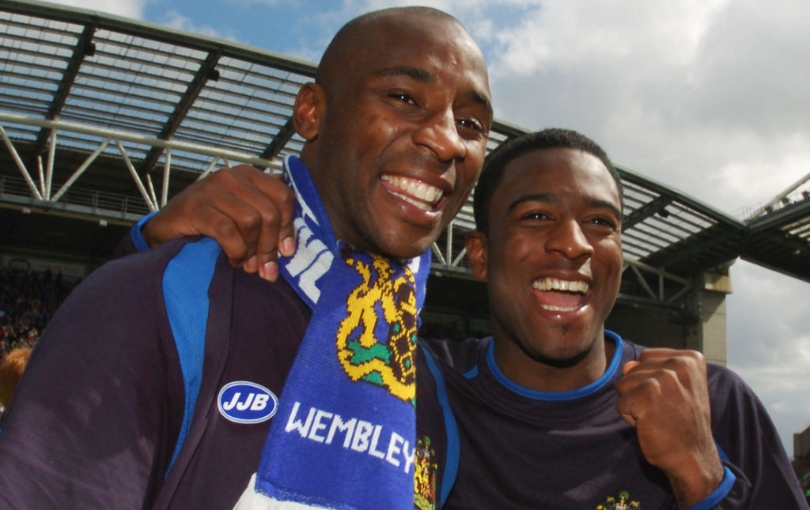Pep Guardiola: The Manchester City boss season by season in the Champions League
Did Manchester City maestro Pep Guardiola lose his touch in Europe? Just been unlucky? Let's assess every continental campaign for the Catalan
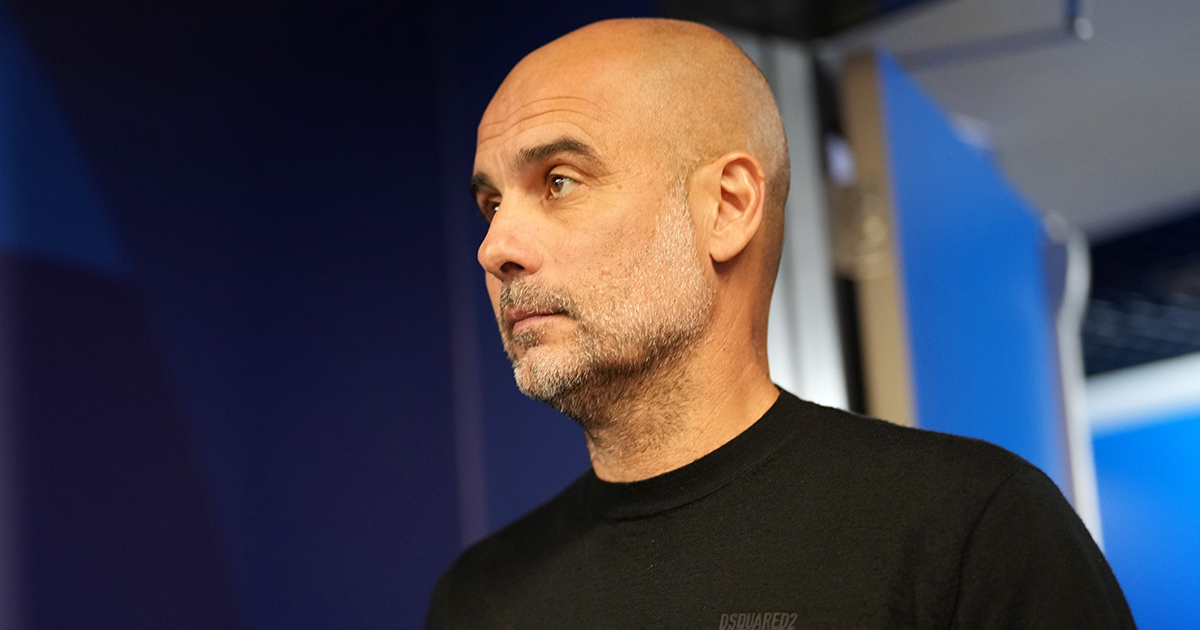
Manchester City manager Pep Guardiola became the youngest-ever boss when he lifted the Champions League for the first time with Barcelona, playing one of the most expansive, exhilarating and influential brands of football that the world had ever seen.
It's fair to imagine that things were never going to get better than that - but even eyes as all-seeing as Pep's must be surprised that it took 12 years to reach the summit once more. Finally, the exclusive club of bosses to lift Old Big Ears with two different teams, includes the genius himself.
It's been a long way to get there once more. Pep Guardiola has been accused of overthinking things, of tinkering too much. Well he's got to the top once more… the long way around.
2008/09 - Barcelona, winners
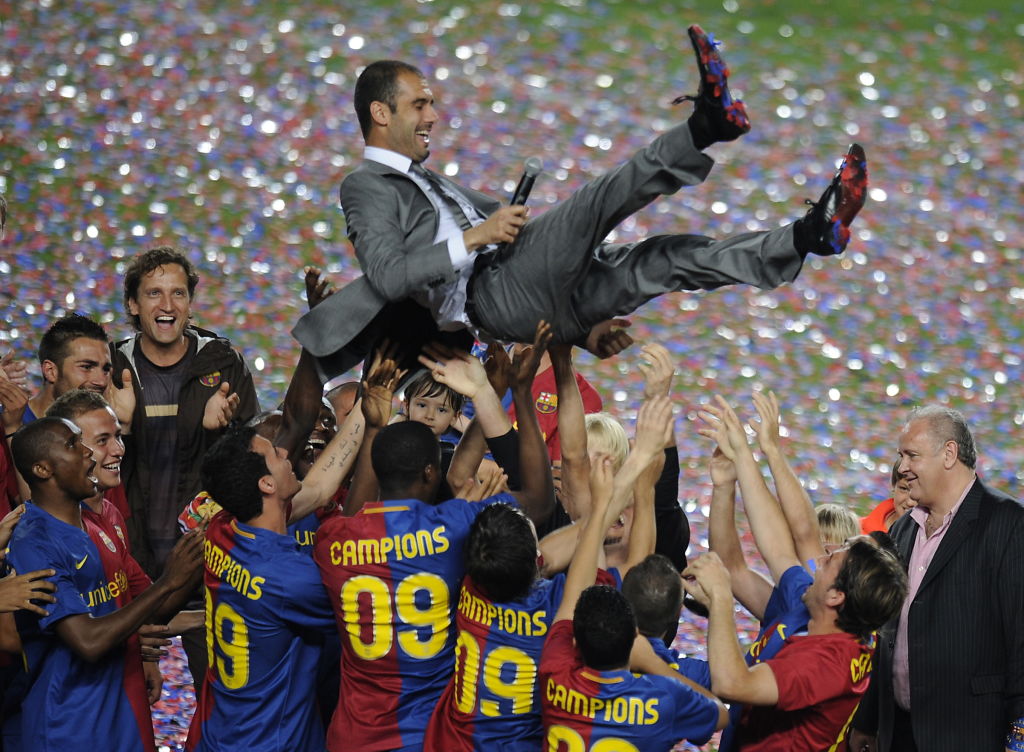
The summer of 2008 was a strange one for Barcelona. Serial winner Jose Mourinho was overlooked for the top job at the club following Frank Rijkaard's exit; instead, president Joan Laporta opted for Barca B boss Pep Guardiola, one of the key figures of Johan Cruyff's Dream Team of '92.
It's easy to say with hindsight that Barcelona were shoo-ins for European glory with that squad but it wasn't that simple: Barça entered the Champions League at the qualifying rounds and weren't many people's favourites for glory. Comprehensive knockout victories against Olympique Lyonnais and Bayern Munich set up a nervy semi-final against Chelsea - and on that tie, Pep's career could have swung the opposite way.
Barca were held to a goalless draw at Camp Nou; the return leg was far from dull. After Michael Essien gave the Blues a lead within ten minutes, Chelsea had four penalty shouts turned down. When Andres Iniesta levelled with an inevitable injury-time equaliser to send Barca through on away goals, Chelsea were incensed and referee Tom Henning Ovrebo had to be escorted out of England by police in fears for his safety.
The rest is history, as far as that tournament was concerned. Goals from Samuel Eto'o and Lionel Messi were enough to clinch a third European title for Barcelona in Rome; on a more personal level for Guardiola, he'd set the bar for what was to become expected of him.
Get FourFourTwo Newsletter
The best features, fun and footballing quizzes, straight to your inbox every week.
2009/10 - Barcelona, semi-finals
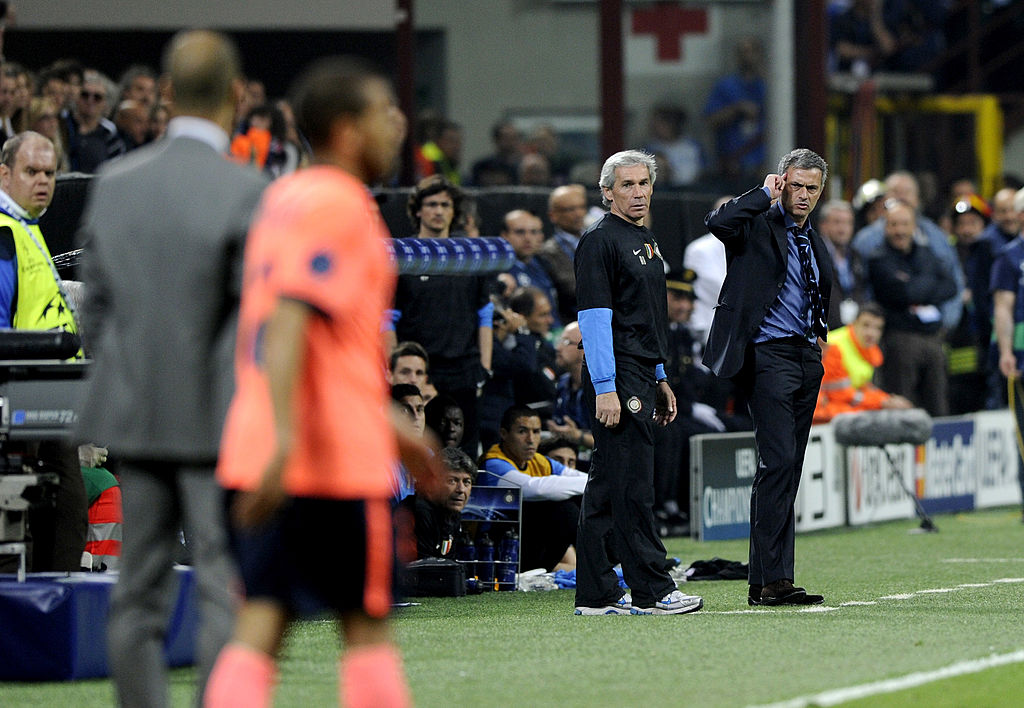
When Jose Mourinho didn't get the Barcelona job, he took it personally. When the immovable wall of Inter Milan met the free-flowing fluidity of Barcelona in the Champions League semi-finals, Mourinho made it about him and Guardiola, rather than the two teams. This was when the two managers' rivalry really began.
The narrative was that this was the battle of two diametrically opposing philosophies - but Jose disagreed. He believed his team was great to watch and that he could show Barça what they were missing. His Inter side triumphed 3-1 in the San Siro - now with added Samuel Eto'o, who'd left Catalonia the summer before - while the return game at Camp Nou pitted a deeper block from Mourinho against every weapon in Guardiola's arsenal.
Ultimately, Pep didn't have quite enough. A 1-0 win, followed by Jose Mourinho's over-the-top celebrations, meant that there was no real inquest into Guardiola's part in the semi-final defeat. Everyone acknowledged that he had much the better side and played much the better football - it was just a case of being beaten by one of the all-time greats at his absolute pomp.
2010/11 - Barcelona, winners
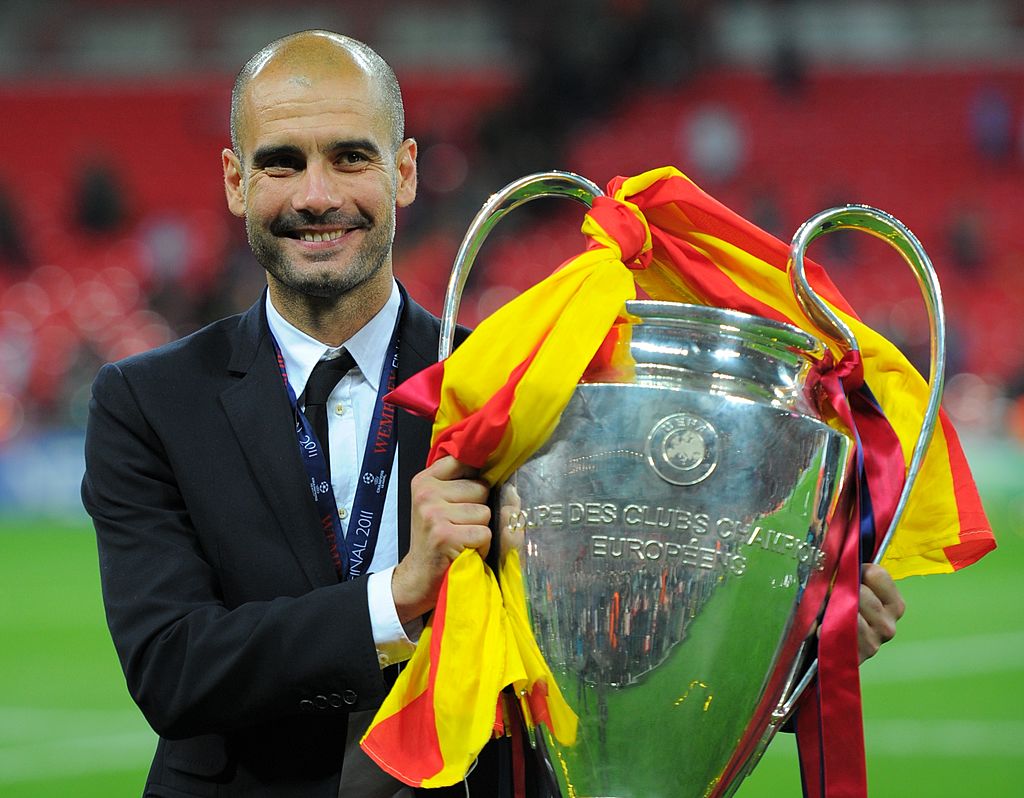
To many, it's the pinnacle of club football. Pep Guardiola's 2011 Champions League winners played some of the most beautiful football ever seen; with Xavi, Iniesta, Sergio Busquets, David Villa and Lionel Messi all arguably at their best this season too, they tore teams apart for fun. Not least Manchester United, 3-1, at Wembley, in a game in which Sir Alex Ferguson simply marvelled at his conquerors.
Barca were excellent all the way up to the final, too. They ran rings against Jose Mourinho's Real Madrid in vengeance for the way he'd defeated them the season prior and were widely considered the greatest side in the world under the world's greatest manager.
The only slice of controversy came in the last-16. Arsenal - 2-1 up from the first leg - were holding Barça 1-1 away from home, when Robin van Persie was given a second yellow card for kicking the ball away. It seemed harsh. If the tie had stayed 11 against 11, would Barça even have made the quarters? We'll never know.
2011/12 - Barcelona, semi-finals
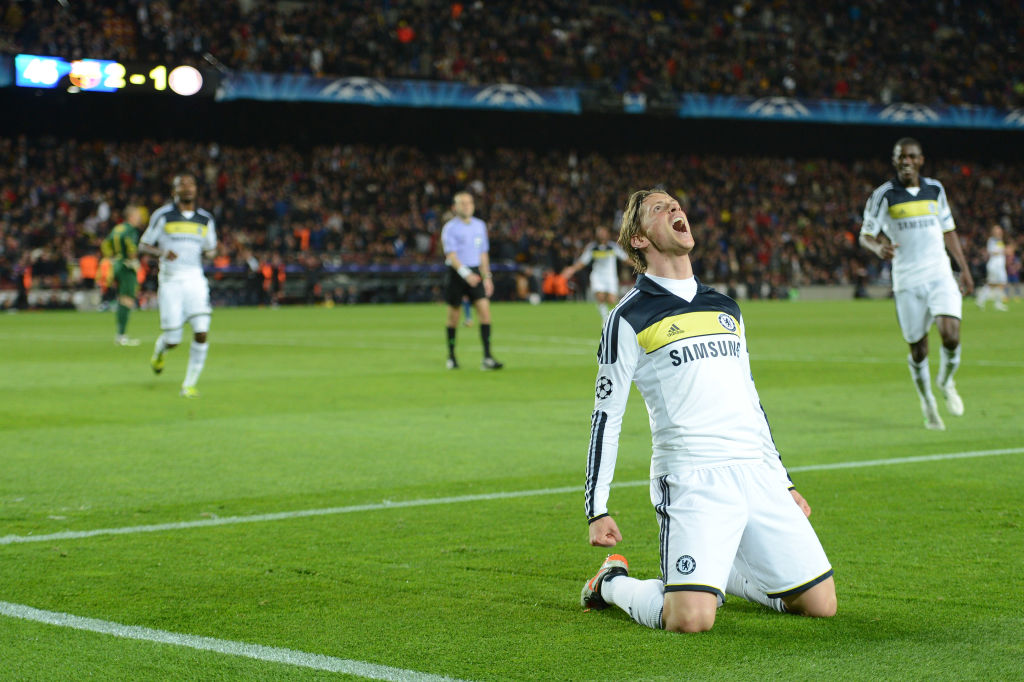
In Pep Guardiola's final season at Barcelona, they again cruised to the semi-finals of the Champions League without a sweat. A 7-1 against Bayer Leverkusen here, a Messi masterclass against AC Milan, there. The semis, however, brought a similar test.
OK, so Jose Mourinho wasn't in charge of Chelsea - but this was a side with the spine of Petr Cech, John Terry, Frank Lampard and Didier Drogba: boys who matured into hardened warriors under Jose, who knew how to grind out results in the big games. And there was no bigger tie than this. Again, an opponent had an axe to grind against Barcelona, too - remember that 2009 semi?
Drogba gave the Blues a first-leg advantage heading into the away leg, where again, Barca peppered their opponents for 90 minutes in search of that reply. With the score at 2-1 late on, Chelsea were heading through on away goals; Guardiola's men still needed that final goal to secure their path to Munich. Cue Fernando Torres.
It was an equaliser on the night but it dealt a hammer blow to Pep's Barcelona in the Champions League. Again, it was defensive resilience, superhuman character and luck that brought an end to Barça's European adventure. His legacy remained as the finest of a generation: after all, no manager had out-thought Pep Guardiola in a dugout in Europe: his teams were just occasionally outplayed on the pitch. And only twice in four years did it make the difference.
2013/14 - Bayern Munich, semi-finals

A year living in New York City had left Pep Guardiola feeling refreshed. A new challenge had presented itself at Bayern Munich, who were looking to become the first club in the modern era to defend the Champions League, after Jupp Heynckes became the fourth manager to win it with different clubs.
Pep could become the fifth. His side breezed through the competition, met Real Madrid in the final four and again, Pep found his team a goal down from the first leg. In the return, Bayern were mauled 4-0 in the Allianz Arena. For the first time, Guardiola found himself having to explain himself.
There was talk of how the Bayern side had ignored his patient tactics in the second leg, going all bull-in-a-china-shop upon Los Blancos. Bayern were ripped apart in transition, looked weak from set-pieces and now, people were starting to ask how Pep would evolve as a manager away from the tiki-taka he'd made his name from.
Instead, it was Carlo Ancelotti who became the fifth manager to win the Champions League with another club. Oh, what might have been.
2014/15 - Bayern Munich, semi-finals
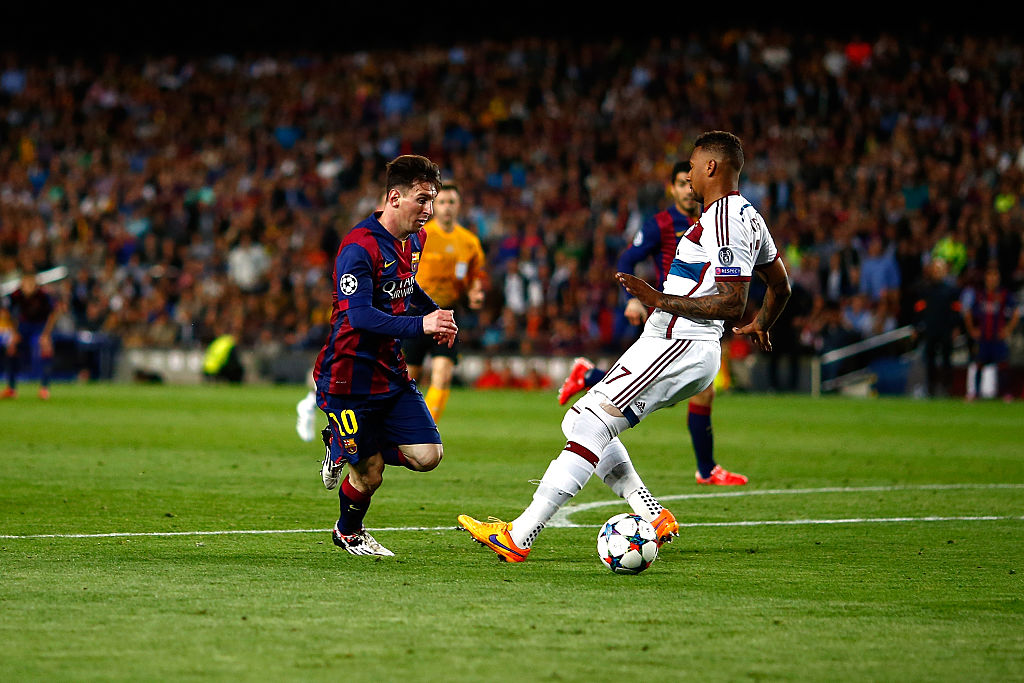
Bayern came back meaner and more ruthless in 2014/15. Robert Lewandowski and Xabi Alonso were the headline acquisitions as Guardiola showed more signs of adapting his thinking. Guardiola experimented with Cruyff-like 3-4-3s, Philipp Lahm moving into midfield, Xabi Alonso dropping into the build-up and Manuel Neuer instigating the counter-attacks. Bayern scored 18 in the group stage, seven in their first two knockout ties... and then things came unstuck again in the semi-finals.
This time, it was the first leg that really knocked Pep out. It was another Messi masterclass - this time, Guardiola wasn't his manager - leaving the German champions with an uphill battle in Bavaria. It's fair to say that Pep was undone with individual brilliance - Ronaldo and Messi will knock out most teams who face them consecutively but again, the defensive organisation was criticised.
In the return leg, Guardiola claimed, “You can only beat Barcelona when you take the ball away from them”. On the night, his side won 3-2, seemingly taking enough of the ball from Messi and friends. But as Thomas Muller left the pitch to boos in the second half, the Bayern faithful probably remembered Heynckes' 4-0 victory over Barça two years' prior, in which Die Roten managed little more than two-thirds possession.
Had Pep Guardiola, of all managers become too one-dimensional?
2015/16 - Bayern Munich, semi-finals

One more season at Bayern. One more Bundesliga title. Another semi-final for Guardiola; this time, a different Spanish team knocked him out.
It was the least convincing path to the final four that Pep had ever had, with extra-time needed to beat Juventus and the grace of away goals keeping Benfica at bay in the final 30 minutes of a quarter-final in Lisbon. But aggregate came back to bite Bayern in the Allianz come May.
Saul scored the only goal for Atletico Madrid in the home leg; in the away, Alonso and Lewandowski's efforts were nullified by an all-important Antoine Griezmann strike. There was talk of friction between Pep and club doctors, Pep and his bosses and Pep and his senior players. There were tactical experiments that hadn't paid off.
Bayern hammered away at Jan Oblak's goal for around 95 minutes - including a saved penalty. There was the feeling that it no longer took something special to defeat Pep Guardiola in Europe: just a solid defensive performance and competence on the break. Despite all the trophies he accumulated in Germany, his legacy is still remembered for what he couldn't do under the midweek lights.
2016/17 - Manchester City, last-16
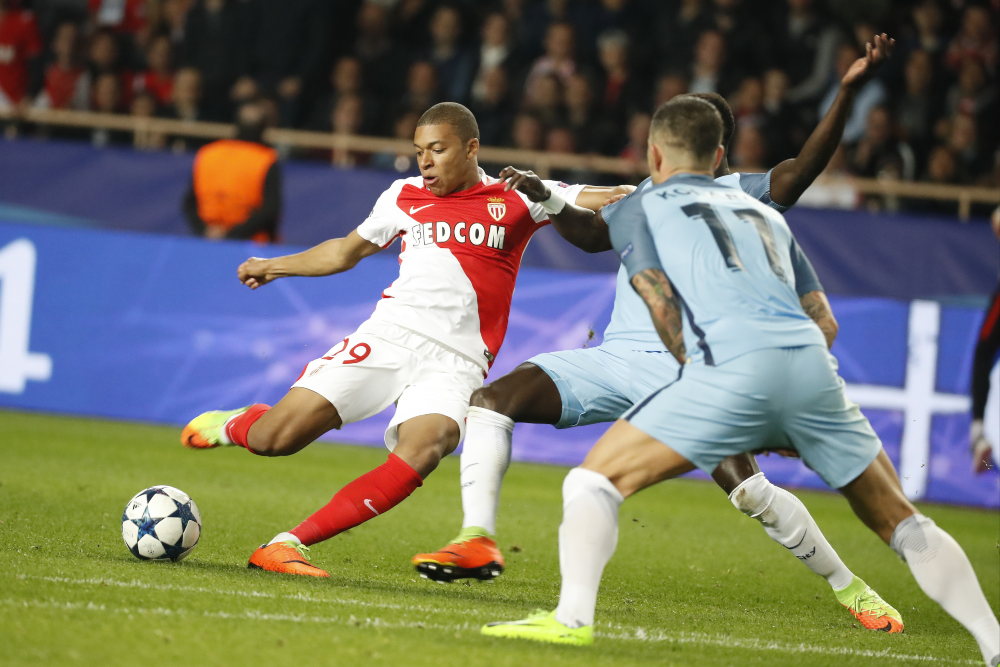
A new season brought a new kind of Pep. 2016/17 was a rebuilding project like he'd never really been involved in, as Antonio Conte charged towards a title with Chelsea and new employers Manchester City got busy assembling the kind of squad that could conquer in years to come.
The knockouts of February 2017 came far too soon for this project. Still, the way that Pep Guardiola went out of the Champions League asked questions.
Monaco had a strong squad, including a teenage Kylian Mbappe, a revitalised Radamel Falcao and future Citizen Benjamin Mendy - but they were surely beatable. City actually managed a hard-fought, wall-to-wall 3-1 win in the principality - not something many English teams have ever managed. But the 5-3 rollercoaster madness of the home leg again asked questions about the Catalan defensively.
This was to be the first season of Pep's career to end trophyless. It was a disappointing campaign with all to prove in the second season.
2017/18 - Manchester City, quarter-finals
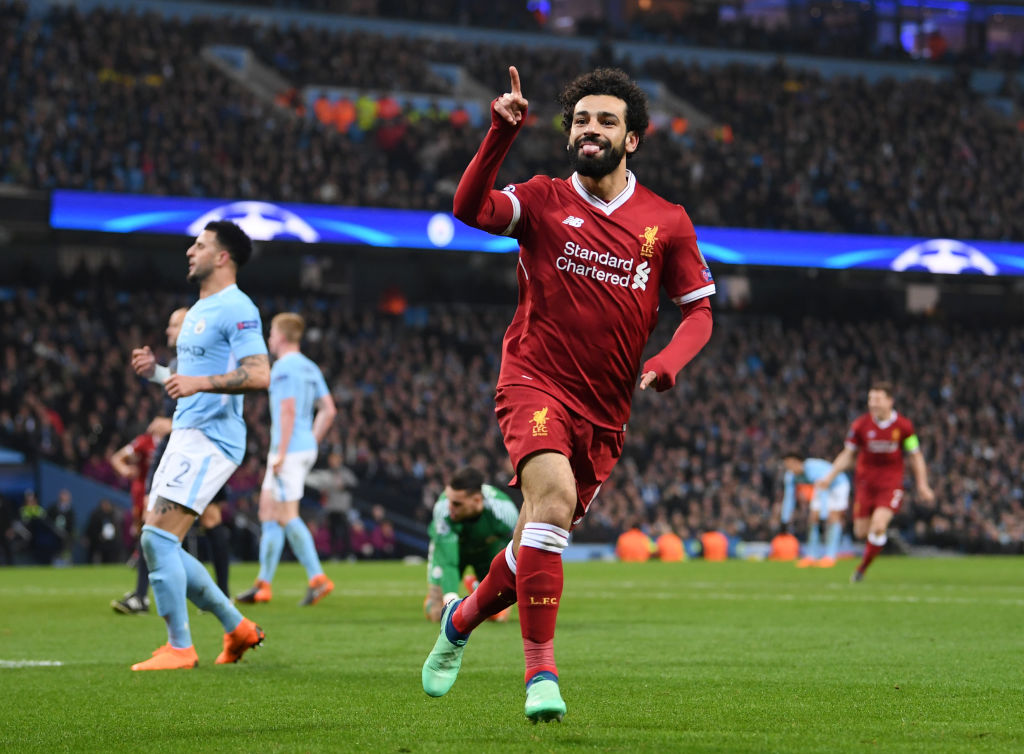
Guardiola more than answered the critics with a 100-point haul in 2017/18. A single cloud hung over the sunny season, though. You guessed it - it came in the Champions League.
Liverpool were the first team to beat City in the league that season, playing high-octane, frenetic football and finding themselves 4-1 up by 70 minutes. The game ended 4-3 but to Pep, it was clear that he'd have to adapt to beat Jurgen Klopp when the pair met in Europe. After Bundesliga battles between the pair, Pep found a way to play Javi Martinez as an "anti-10" to nullify Klopp's similarly effervescent Borussia Dortmund. He went back to the tactics bunker to concoct a plan.
When the pair met at Anfield in a Champions League quarter-final, Raheem Sterling was curiously left out for Ilkay Gundogan. Liverpool made sure to intimidate City - not least when the team bus arrived for the game - and the Kop booed every touch from a City player as Guardiola's side looked timid in the shadow of the Reds. Liverpool pinpointed Fernandinho, pressed him to an inch of his life and went 3-0 up within 32 minutes. The tie was over by then.
Guardiola was accused of overthinking - something that he may well have been guilty of again when he opted for a Bielsa-esque 3-3-1-3 formation in the return leg, which he'd never used at City before. Liverpool again won, this time 2-1. It was a definitive moment in which Klopp's heavy metal football had been vindicated.
2018/19 - Manchester City, quarter-finals
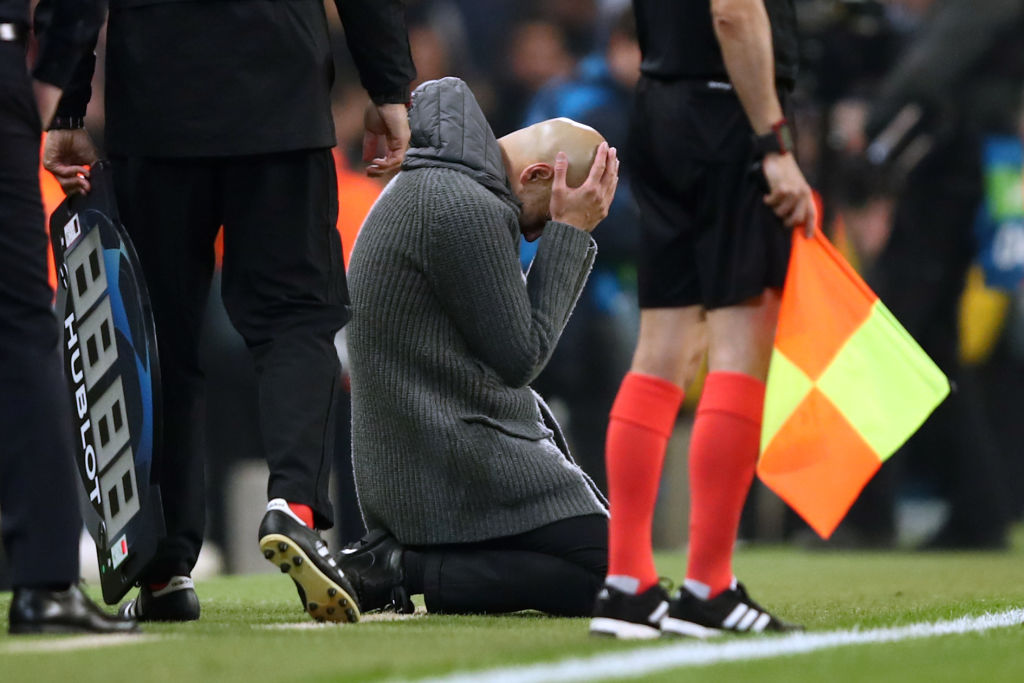
In 2019, City were again looking supreme domestically and again came up against an English side in Europe. Again, the first leg left Guardiola with it all to do, as a single Son Heung-min strike beat City 1-0. Sergio Aguero missed a penalty - and questions were asked of a midfield consisting of Gundogan, Fernandinho and David Silva.
20 minutes into the return game, it was 2-2: it was always going to come down to away goals, wasn't it? Raheem Sterling had a last-gasp effort ruled out by VAR but the damage had already been done. The critics, again, came out in force.
The games against Tottenham Hotspur highlighted a myriad of issues that Guardiola had shown in Europe over the years. Once again, a bad first-leg result left his side clawing up a mountain. There was defensive deficiency a-plenty. A lack of character showed. But it wasn't all about mentality.
As Kevin De Bruyne, Bernardo Silva and David Silva struggled to grip the midfield in that final quarter of the tie, questions were asked of the logic of bending two wide playmakers into midfielders and expecting them to dictate in the heat of a European night. There was a distinct lack of unpredictability too from Guardiola's players. No one seemed capable of conjuring the unexpected; few did at Bayern, either. It summed up a lot of the flaws in Guardiola's game. His teams were still magnificent - but they were beatable.
2019/20 - Manchester City, quarter-finals
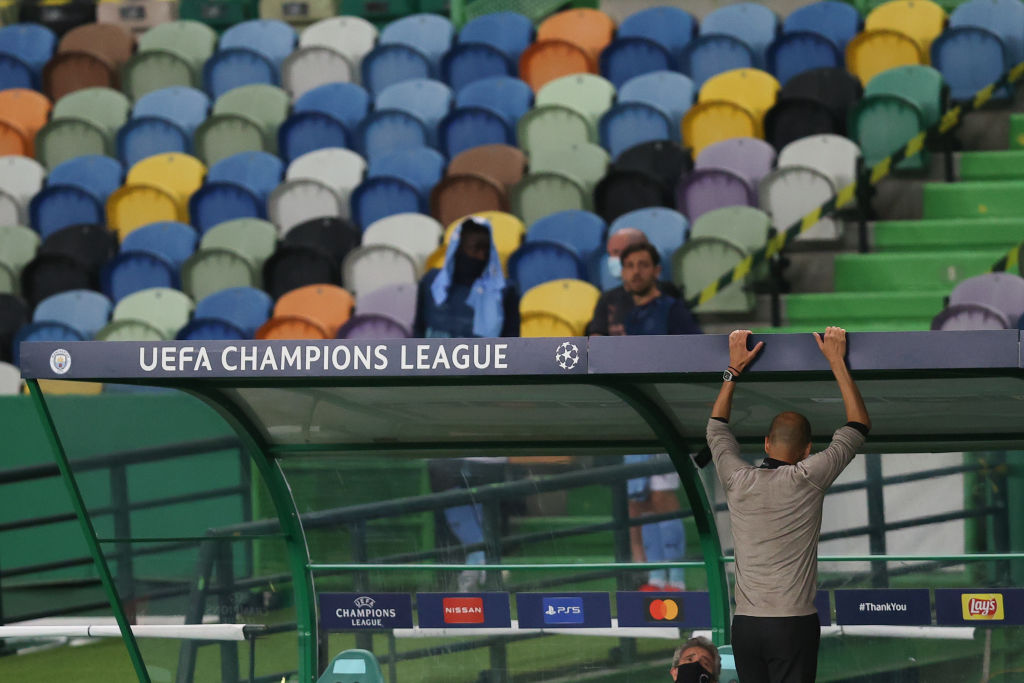
Against Real Madrid in the second round in February 2020, it looked like things were beginning to change at Man City. Kevin De Bruyne stepped up to lead. Gabriel Jesus played with discipline and fire in his heels. In Ilkay Gundogan, City had a conventional midfield controller.
OK, City weren't the favourites, come the single-leg knockout tournament in Lisbon during August, but they were in with a good shout of equalling their personal best of reaching a semi-final. A win over Olympique Lyonnais - who hadn't even qualified for Europe for the following season - and they'd set up a tie with Bayern. Potentially a final against RB Leipzig, Paris Saint-Germain or Atletico Madrid. All beatable opposition.
Once more, Guardiola looked guilty of overthinking the game, fielding a defensive-looking 3-4-3. Perhaps he wanted to err on the side of caution after Lyon beat his side in 2018 - but as hard as De Bruyne tried to lift the side, they fell away in the closing stages, losing 3-1 to two Moussa Dembele goals. Pep was roundly blamed - even according to the players, according to reports. It was a huge opportunity missed and the wait went on for another European title.
2020/21 - Manchester City, runners-up

City were formidable all season, even without a conventional striker for most of the campaign. They had a brief scare against Borussia Dortmund in the knockouts but overcame PSG with ease to set up a final against a technical, tactic Chelsea side who could truly hurt City - and perhaps from that moment, the panic set in for Guardiola.
In a league game between the pair, the title already sewn up, Pep experimented with a back three and lost. In an FA Cup semi-final against Tuchel, Chelsea isolated Dias and Stones on the break expertly, to win 1-0 through a Hakim Ziyech strike. The Porto final would surely see Pep revert back to what worked, right?
Wrong. Ilkay Gundogan - City's top scorer - moved to the base of midfield. Rodri and Fernandinho were absent: Sterling came in. City looked like they were just about adjusting to the change, only for Kai Havertz to hit on the break. The inevitable uphill struggle was nullified by an inspired N'Golo Kante, while Kevin De Bruyne had to leave the field after being smashed in the face in an aerial duel with Antonio Rudiger. Will he ever stop overthinking?
2021/22 - Manchester City, semi-finals

"It was in the palms of their hands," BT Sport commentator, Darren Fletcher surmised. That's an understatement. Los Blancos supporters were ambling to the exits, Jack Grealish was spurning chances for fun and a rearguard effort from the Citizens had kept Real Madrid at bay for 90 minutes, magnificently so. Guardiola was cool, calm, collected: he took off Kevin De Bruyne, Gabriel Jesus and Kyle Walker, as the game looked done and dusted.
City were 4-3 up in the first leg, 1-0 up in the second, two goals clear: then Rodrygo netted twice in stoppage time. In extra-time, Karim Benzema - of course - was on hand to deliver the sucker punch.
Critics pointed to how Guardiola's sides have leaked multiple goals in quick succession to lose games. Two goals within eight minutes against Monaco, Three in 20 against Liverpool, two in 10 against Tottenham, Two in 10 against Lyon… and now three goals in five minutes either side of full-time against Madrid.
2022/23 - Manchester City, winners
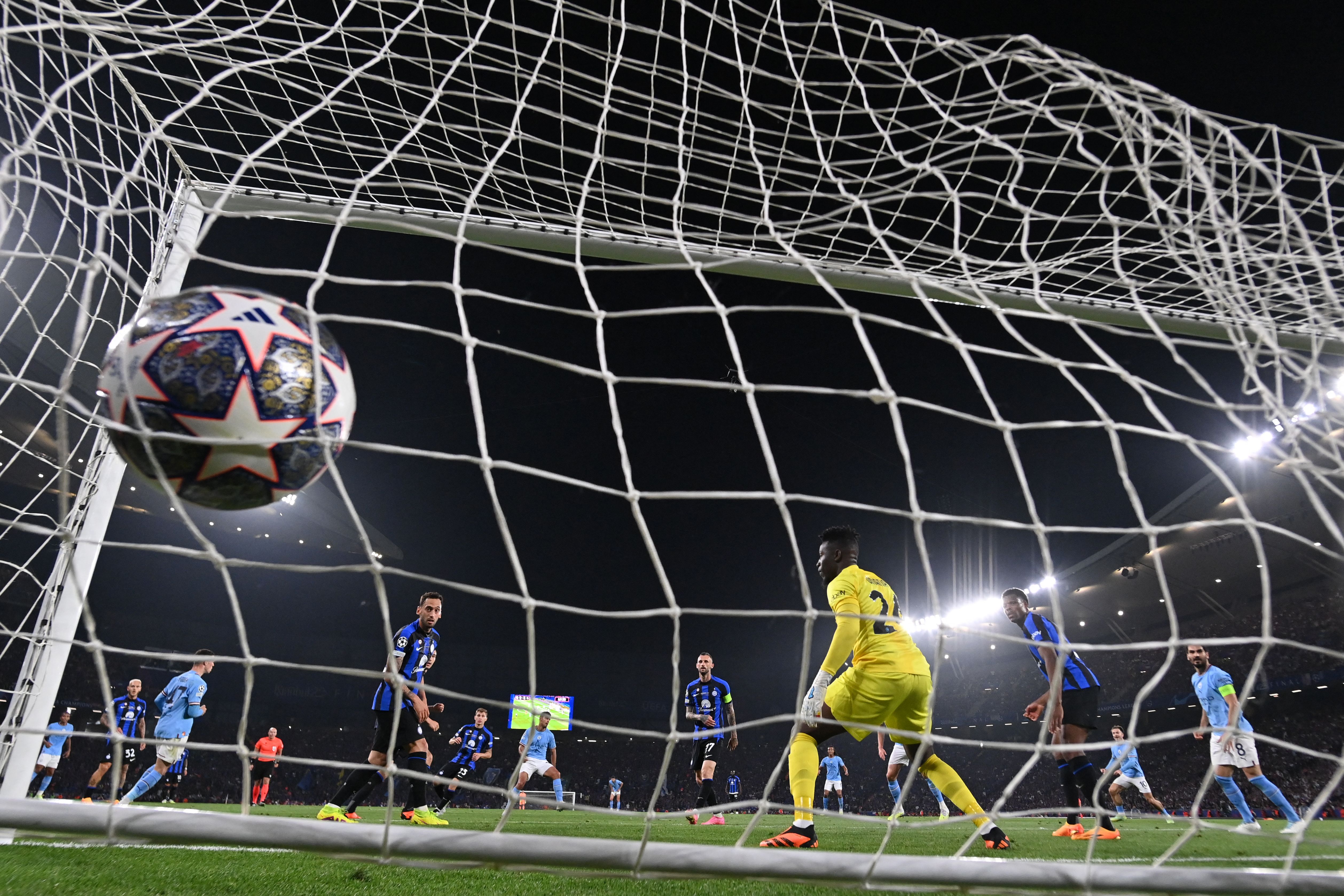
Finally. It took 12 years, it took a lot of money and plenty of setbacks at City. So what exactly changed?
It's hard to pinpoint one aspect. Obviously Erling Haaland helped along the way with his goals but he was capable of holding the ball up as a target man at times. Ilkay Gundogan sitting in midfield gave a degree of control to the side that they didn't have with the likes of David Silva and Bernardo Silva in the centre of the pitch. John Stones moving into the centre of midfield made more sense than a full-back as it didn't expose them on the flanks.
Simply put, this is just one of the greatest teams of all time: complete in every aspect. Treble winners, too: what a way to do it.
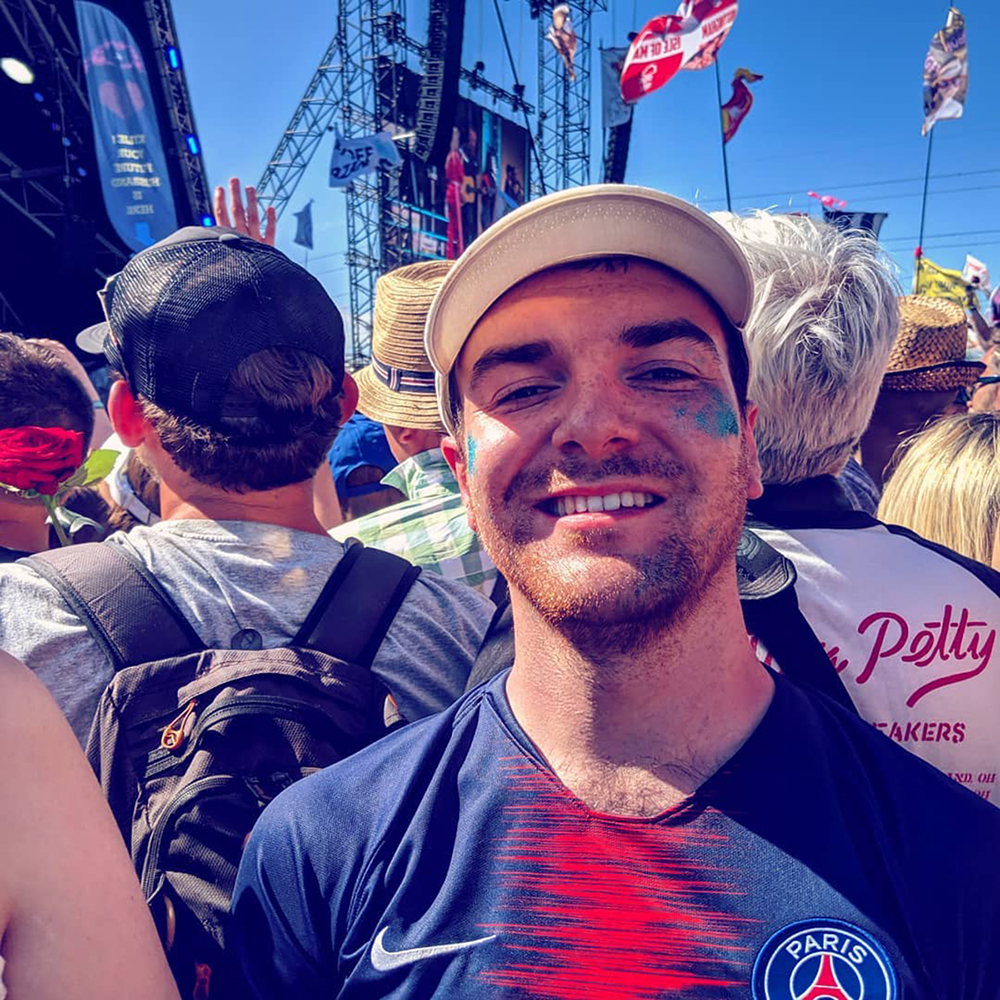
Mark White has been at on FourFourTwo since joining in January 2020, first as a staff writer before becoming content editor in 2023. An encyclopedia of football shirts and boots knowledge – both past and present – Mark has also represented FFT at both FA Cup and League Cup finals (though didn't receive a winners' medal on either occasion) and has written pieces for the mag ranging on subjects from Bobby Robson's season at Barcelona to Robinho's career. He has written cover features for the mag on Mikel Arteta and Martin Odegaard, and is assisted by his cat, Rosie, who has interned for the brand since lockdown.
